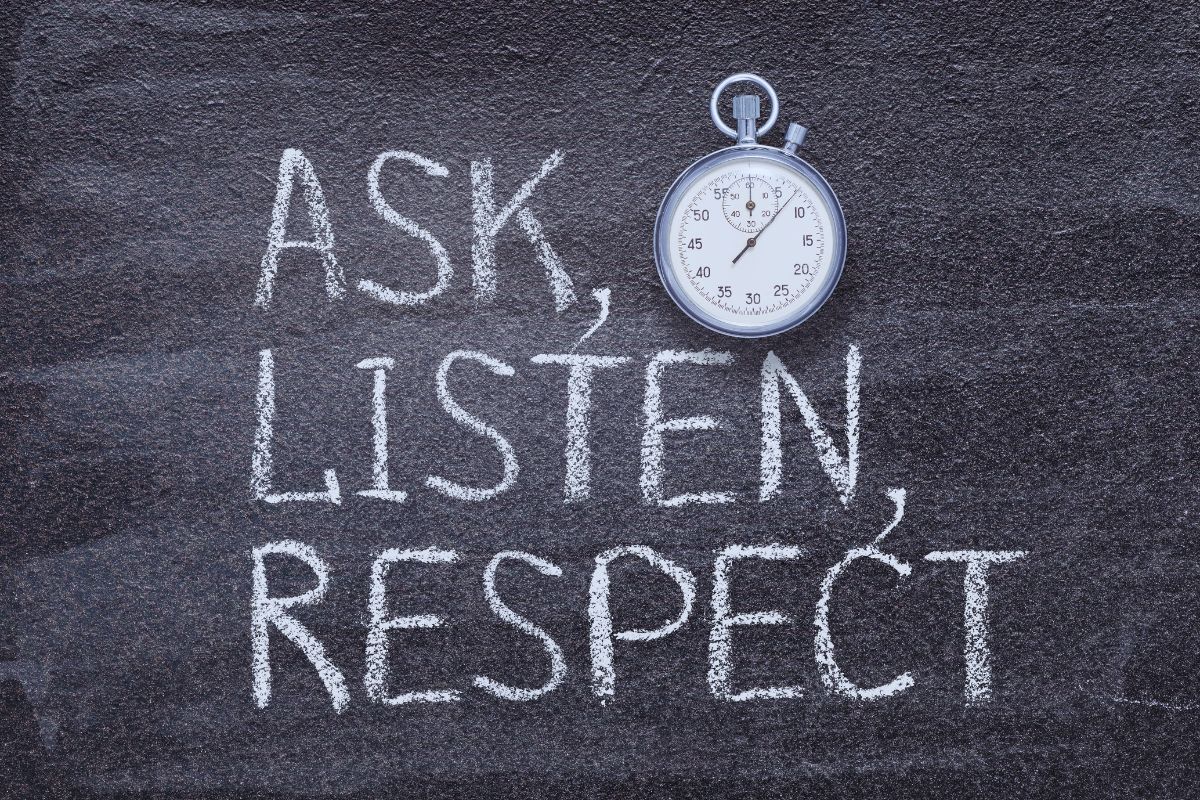How to Show Empathy in 15 Simple Ways

Published January 15, 2024
Empathy is the ability to understand and share the feelings of another. Take note of the keywords “understand” and “share”. This means that empathy is not about sympathizing with or showing pity for others.
Empathy is putting yourself in another person’s shoes. It’s about seeing their struggles from their perspective and feeling what they feel as your own. It’s the ability to visualize yourself in that person’s situation.
We all have different experiences that molded us into who we are today. These experiences also shape our perceptions of things and people. This is why it’s not always easy to understand what others are going through. We did not experience all that they had experienced, so it’s hard to imagine ourselves in their situations.
For instance, people who have never been homeless will find it difficult to understand how it is to have no place to call home. If you’ve never lost a child, it can be hard to put yourself in a grieving mother’s shoes. Or if you’ve never experienced depression, it won’t be easy for you to relate with people who had to live with it.
But we can always TRY to understand where they’re coming from. As humans, one of our defining characteristics is our capacity for empathy. We are innately emotionally intelligent, and our brains are hardwired to empathize with others.
We don’t always need to experience homelessness to empathize with homeless people. Nor do we need to lose a loved one to empathize with those who did. What matters is the willingness to understand their circumstances from their point of view.
This is why showing and practicing empathy is not just about words. It’s a lot more about actions. It’s in how you make people feel that someone still cares. You don’t always need grand gestures to show that you empathize. You can express it even in the little things you do.
How To Show Empathy
1. Listen To Understand
Most of the time, people need to feel heard. This is why listening is one of the first steps to showing empathy. And if you do decide to lend your ear to someone, listen to understand.
Many don’t like listening to people whining about their lot in life. Especially if we, too, have our burdens to bear. So, most of the time, their words go in one ear and out the other. We listen for the sake of listening, not because we want to understand.
But if you want to show empathy, actively listen to what they say. Let them talk with no interruption. Let them pour their heart out. Look at their facial expressions and read between the lines. Listen to their words and the silent screams of frustration inside them. Sometimes, it takes only one person willing to listen and understand to take someone out of their misery.
2. Ask With Genuine Curiosity
Asking questions like “How are you?” or “How’s your day?” is a great way to start conversations. But most of the time, we only ask people those questions out of politeness rather than genuine curiosity. That’s why most conversations start and end with those questions.
But as one clinical psychologist puts it, the core of empathy is curiosity. If you want to understand someone, you need to dig deeper. Show that you are interested in what they have to say. Rather than asking how their day went, let them talk about something interesting that happened to them.
But not in a way that makes them feel like they’re in a job interview or a therapist’s office. Ask them like you would a friend or a loved one. A simple act builds rapport and makes the person feel that they matter and that someone cares for them.
3. Be Present
Nothing can be more irritating than talking to someone mentally wandering around. So imagine what the other person would feel if you were staring at your gadget the whole time they were talking. Listening to others about their problems can sometimes be awkward or boring. So, the temptation to doze off or play with your gadget can be hard to resist.
This is why being present and paying attention to people is a great way to show sympathy. If you can focus on the person in front of you, it will tell them that you’re willing to listen. It shows that you care about them and that you’re someone they can pour their heart out to.
4. Let Go of Your Biases
All of us are guilty of having biases and prejudices. But it doesn’t mean we can’t unlearn them. If you want to show empathy to others sincerely, you first need to let go of all your biases. Learn to listen with an open mind. Remember, we all have different experiences. All of us are fighting a battle that nobody but us knows about. So don’t be too quick to judge anyone without first understanding their motivations.
5. Refrain From Offering Unsolicited Advice
People who share their problems with you are not necessarily looking for advice. Sometimes, they just need a shoulder to cry on. So, as much as possible, avoid offering unsolicited advice. I know you mean well, but receiving unsolicited advice doesn’t sit well with people going through a tough time. Remember, they need someone to understand them, not someone who tells them what to do.
6. Look Them In The Eye
They say that the eyes are the windows to one’s soul. That’s why looking someone in the eye is a great way to convey empathy and sincerity. Most people also see eye-to-eye contact as a way of sharing your soul with the other person.
But remember to do it naturally and not in a creepy way. Also, you can’t do this with anyone. Some people are uncomfortable maintaining eye contact, and you must respect that.
7. Acknowledge Their Feelings
Everyone’s feelings are valid, even if you disagree with their beliefs and decisions. So avoid telling people phrases like “it’s alright, you’ll get through it” or “just look on the bright side.”
Though these may sound reassuring, it invalidates their feelings and emotional pain. Instead, tell them, “I’m sorry you are going through this” or “I can’t imagine what you must be going through.” It shows that you acknowledge their feelings and that it’s perfectly understandable for them to feel that way.
Besides, research has shown that emotional validation helps people better regulate their emotions. This, in turn, makes them less likely to show aggression.
8. Open Up About a Similar Experience
Though it may seem like you should focus on the other person, practicing empathy is a two-way street. Sometimes, it helps to open up about your experience in a similar situation so others can see their predicament from a different perspective. But be careful not to make the conversation about you. It should share experiences and perspectives so you can learn from each other.
9. Practice Mindfulness
According to a Harvard health article, mindfulness is the practice of purposely focusing on the present moment and accepting it without judgment. Being mindful of your environment and the people around you will help you see things in a different light. It enables you to develop a keen sense of understanding towards them, which eventually leads to a heightened sense of empathy.
10. Accept Their Opinion
People forcing their opinions on others is the reason why this world is so messed up. Remember that life is like a prism. We are all looking at the same structure, but we see it from a different perspective. Thus, it’s inevitable that we will have different opinions. And those whose views oppose yours aren’t necessarily wrong.
You just don’t see things from each other’s point of view. That’s why respecting and accepting other people’s opinions is crucial in learning empathy. It doesn’t necessarily mean that you’re disregarding your own opinion. It just means you are willing to look at things from their side of the prism. And that is what empathy is really about.
11. Try Out Someone’s Life
Putting yourself in their shoes is not enough to truly understand someone. You must walk in them. Try to live their life for even just a day. Visit them in their homes, go to their place of worship, or spend time in their neighborhood.
Or, if you want to get a glimpse of what homelessness is like, sit down and share a meal with a homeless person. You’ll be surprised at how much insight you’ll gain from experiencing another person’s life.

12. Ask How You Can Help
Words like “I’ll always be here if you need any help” or “I’m just a call away” can be very reassuring if you’re in a difficult place. So, if you want to show someone you understand their struggle, offering your help is a good start. Just extend your help if they take you up on your offer. This will make them feel that you are sincere and those aren’t just empty words.
(Related: Being Thankful vs. Grateful: What’s the Difference?)
13. Show Non-Judgmental Behavior
Approach situations and individuals with an open mind. Free yourself from preconceived notions or assumptions. Refrain from hastily forming opinions or passing judgment based on limited information.
Practicing non-judgmental behavior creates a safe and accepting space for open communication. This allows for deeper connections and fosters a more inclusive and understanding environment.
14. Respect Personal Boundaries
Understand that some individuals may be uncomfortable discussing specific topics or sharing personal information. Respect their boundaries and allow them to open up at their own pace.
15. Show Empathy Through Body Language
Use appropriate body language. Maintain eye contact or nod to show understanding. Use open and welcoming gestures.
Donate To The Poor & Homeless Of South Florida
Our Father’s House Soup Kitchen has fed the poor and homeless in South Florida over 900,000 hot meals since 1993. Our tax deductible non profit organization also accepts and distributes donations such as clothing, toiletries, shoes, bicycles, and more. You can donate to help the poor and homeless through our website.

Reviewed For Factual Accuracy
Our team meticulously fact-checks all website content before publishing. Discover more about our website’s editorial standard here and the dedication we uphold.

About The Author
Judy Ponio is a professional writer and devoted Christian. She has a passion for writing about topics related to morality and helping the poor and homeless. She is the lead author for the Our Father’s House Soup Kitchen blog.
Correct Digital, Inc is paid by private donors to provide website digital marketing services to this non-profit organization.





